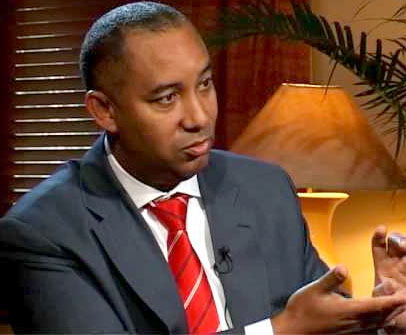The World Bank provided a credit guarantee to the Government of Ghana which was subsequently used to back the Independent Power Producers (IPPs) to raise funds from the banks to construct the power plants in the country during the power fluctuation or ‘dumsor’ era, a former Chief Executive Officer of the Ghana National Petroleum Corporation, Alex Mould has told Joy Business.
“The World Bank increased Ghana’s ‘implicit guarantee’ so we could use as a credit derivative and lessen the risk of default by the counterparties [IPPs]. The World Bank was involved in the selection of the IPPs and also lent support to the Ghana government as ‘Partial Risk Guarantee’”. A partial risk guarantee protects private lenders against debt service defaults on loans, normally for a private sector project, when the defaults are caused by a government’s failure to meet specific obligations under project contracts to which it is a party.
“So, they [World Bank] provided support in the form of additional guarantees so that the Government of Ghana could provide a credit-backed ‘Government Consent and Support agreement’ [GCSA} or ‘Partial Risk Guarantee’ to enable these IPPs raise the financing”, he emphasized.
The World Bank in a statement said “it wishes to clarify that it has not provided any financing or guarantees to the Independent Power Producers (IPPs) that signed Power Purchase Agreements with the Government of Ghana or the Electricity Company of Ghana during the (Dumsor) energy crisis in 2014-2016”.
It however said it supports the Energy Sector Recovery Plan (ESRP) of the Government of Ghana for affordable and reliable electricity supply and enhance the accountability in the energy sector.
Again, it said it rather provided financing and a guarantee to the Sankofa Gas Project, which since 2019 has increased the availability of natural gas for power generation by leveraging private capital investment and promoting a cleaner energy mix.
But Mr. Mould said the World Bank was involved in discussions of the Partial Risk Guarantees to the IPPs and that it was in the context of its overall support to Ghana that the IPPs established their presence here.
He is therefore surprised that the World Bank wants to take a ‘back seat’ on this matter.
“The World Bank was aware and involved in the discussion of the selection criteria to be used since we had more than eight IPPs that qualified for the Partial Risk Guarantee”, he emphasised.
Latest Stories
-
CLOGSAG vows to resist partisan appointments in Civil, Local Government Service
36 minutes -
Peasant Farmers Association welcomes Mahama’s move to rename Agric Ministry
38 minutes -
NDC grateful to chiefs, people of Bono Region -Asiedu Nketia
40 minutes -
Ban on smoking in public: FDA engages food service establishments on compliance
41 minutes -
Mahama’s administration to consider opening Ghana’s Mission in Budapest
43 minutes -
GEPA commits to building robust systems that empower MSMEs
45 minutes -
Twifo Atti-Morkwa poultry farmers in distress due to high cost of feed
48 minutes -
Central Region PURC assures residents of constant water, power supply during yuletide
49 minutes -
Election victory not licence to misbehave – Police to youth
51 minutes -
GPL 2024/2025: Nations thrash struggling Legon Cities
53 minutes -
Electoral offences have no expiry date, accountability is inevitable – Fifi Kwetey
53 minutes -
Ghanaians to enjoy reliable electricity this Christmas – ECG promises
1 hour -
Police deny reports of election-related violence in Nsawam Adoagyiri
1 hour -
‘We’re not brothers; we’ll show you where power lies’ – Dafeamekpor to Afenyo-Markin
1 hour -
EPA says lead-based paints are dangerous to health, calls for safer alternatives
3 hours

